PROMO!
First order? Get 10% OFF with this code: 1storder
Our Product Categories
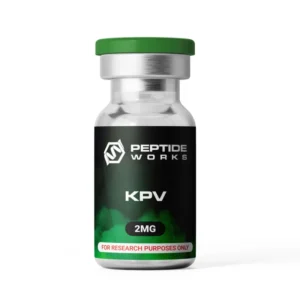
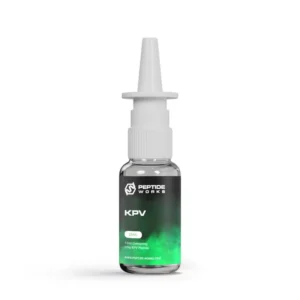
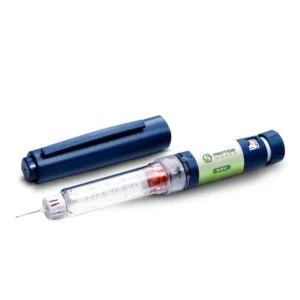
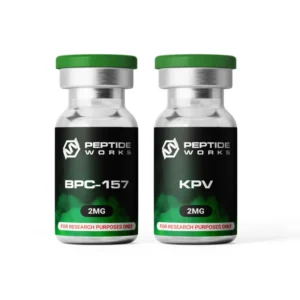
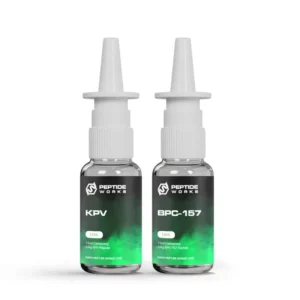
KPV peptide is a small protein made up of three amino acids: lysine (K), proline (P), and valine (V). It’s a natural part of a hormone in your body called alpha-melanocyte-stimulating hormone (α-MSH), which helps control inflammation and supports healing. KPV is gaining attention because of its ability to calm inflammation and fight harmful bacteria and fungi.
This makes it useful for conditions like irritated skin, wounds, and gut issues such as Crohn’s disease. By reducing inflammation and promoting balance in the immune system, KPV helps the body heal faster, protect the skin, and maintain a healthy digestive system.
Peptide Sequence (IUPAC Condensed): H-Lys-Pro-Val-OH
Molecular Formula: C16H30N404
Molecular Weight: 342.43 g/mol
View the KPV Certificate Of Analysis (COA)
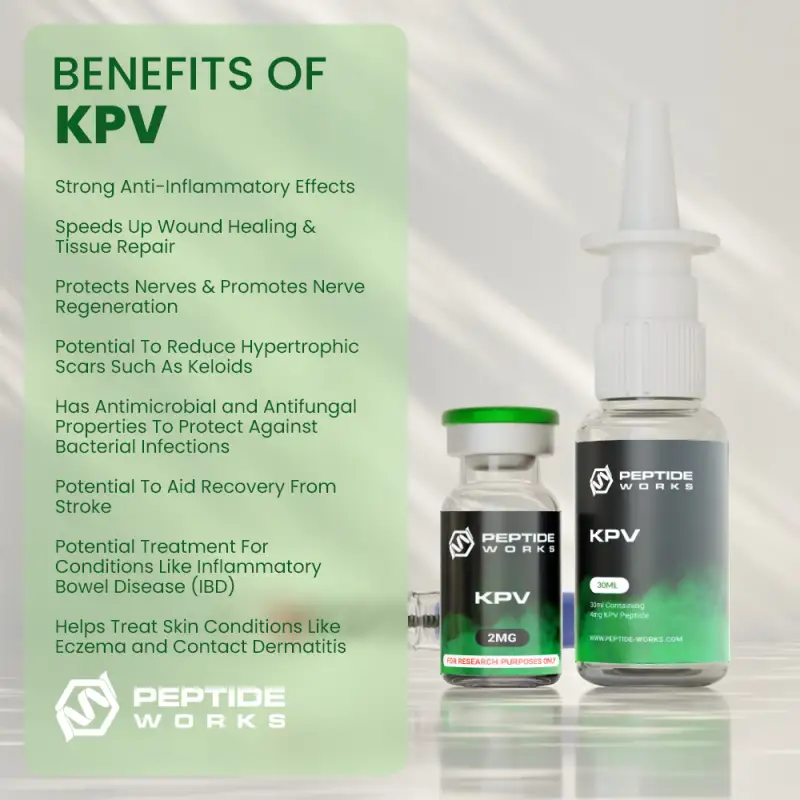
KPV peptide works through its anti-inflammatory and antimicrobial properties. It attaches to melanocortin receptors (MC1R) on immune cells. This action lowers the production of pro-inflammatory cytokines such as TNF-α, IL-6, and IL-1β, which helps control inflammation. Due to this, it’s beneficial for conditions such as inflammatory bowel disease and psoriasis.
KPV also demonstrates antimicrobial properties, helping control infections by combating certain bacteria and fungi. By reducing inflammation and promoting immune balance, it supports wound healing, tissue repair, and the maintenance of a healthy skin barrier. Furthermore, its protective effects on the intestinal lining suggest it could be a potential treatment for gastrointestinal disorders such as Crohn’s disease and ulcerative colitis.
Buy KPV Peptide 2mg Vial from Peptide Works. Each vial contains high-purity lyophilized peptide and is supplied individually or as a complete kit that includes bacteriostatic water and syringes for effortless preparation.
Anti-Inflammatory Effects: Research suggests that KPV, a C-terminal fragment of alpha-MSH, exhibits potent anti-inflammatory effects without the pigmentary side effects of alpha-MSH [1]. In murine colitis models, KPV accelerated recovery, reduced weight loss, and decreased inflammatory cell infiltration and myeloperoxidase activity.
Mechanistically, KPV inhibits key inflammatory pathways, including NF-κB and MAP kinase, in intestinal epithelial and immune cells. Unlike alpha-MSH, KPV’s effects are independent of melanocortin receptors, acting instead by suppressing IL-1β functions. Its dual action on inflammation and favorable production properties make KPV a promising therapeutic candidate for immune-mediated conditions like colitis, arthritis, and inflammatory skin and lung diseases.
Gut Health Support: Research on KPV shows it supports gut and intestinal barrier health by reducing inflammation and promoting mucosal healing. It is transported into intestinal epithelial and immune cells via hPepT1, enabling intracellular anti-inflammatory effects [4]. In colitis models, KPV delivered through hyaluronic acid-functionalized nanoparticles improved mucosal healing, reduced TNF-α expression, and preserved colon length, indicating less severe inflammation [5].
Studies have also shown that KPV inhibits NF-κB and MAP kinase pathways, reducing pro-inflammatory cytokines. The findings suggest that KPV holds great potential as a treatment for inflammatory bowel disease (IBD). By improving delivery, reducing inflammation, and reinforcing the intestinal barrier, KPV emerges as a promising contender for future IBD therapies [6].
Skin Healing and Protection: Research indicates that KPV enhances skin health, wound healing, and protection through its anti-inflammatory, antioxidative, and cytoprotective properties. It accelerates wound healing by modulating inflammation, supporting collagen turnover, and protecting skin cells [7].
Studies have also shown it shields keratinocytes from oxidative stress and inflammation caused by environmental pollutants like PM10, reducing ROS production, apoptosis, and IL-1β secretion. Advanced delivery methods, such as microneedles and iontophoresis, significantly improve KPV’s skin penetration and retention [8].
These findings highlight KPV’s potential as a therapeutic agent for treating wounds, skin ulcers, and pollution-induced skin damage, with promising applications in dermatology and functional cosmetics for skin protection and repair [9].
Immune Balance: Research has shown that the KPV peptide promotes immune balance by modulating inflammatory pathways and suppressing excessive immune responses. Studies have demonstrated that it inhibits NF-κB signaling, stabilizes IκBα, and prevents nuclear translocation of p65RelA, reducing pro-inflammatory cytokines like IL-8 and eotaxin [10].
KPV also interacts with importin-α3 to block inflammatory signaling. These effects have been demonstrated in airway epithelial cells, highlighting KPV’s potential to regulate immune responses in conditions like asthma. Its anti-inflammatory properties make it a promising therapeutic for immune-mediated diseases [11].
Antimicrobial Properties: Research has demonstrated that KPV exhibits antimicrobial, antioxidant, and antifibrotic properties. Derived from α-MSH, studies have shown that KPV reduces oxidative stress and inflammation by inhibiting NF-κB activation and pro-inflammatory cytokine production [10]. It also prevents fibrosis by modulating fibroblast activity, reducing collagen and α-SMA production in fibrotic tissues [12].
These properties, combined with its favorable safety profile, make KPV a promising therapeutic candidate for managing chronic inflammation, fibrosis, and related organ dysfunction, as well as protecting against microbial and oxidative damage.
[1] S J Getting, H B Schiöth, and M Perretti (2003) Dissection of the anti-inflammatory effect of the core and C-terminal (KPV) alpha-melanocyte-stimulating hormone peptides – Journal of Pharmacology & Experimental Therapeutics, 2003 Aug, Volume 306 (Issue 2), Pages 631-7.
[2] T Brzoska, T A Luger, C Maaser, et al (2008) Alpha-melanocyte-stimulating hormone and related tripeptides: biochemistry, antiinflammatory and protective effects in vitro and in vivo, and future perspectives for the treatment of immune-mediated inflammatory diseases – Endocrine Reviews, 2008 Aug, Volume 29 (Issue 5), Pages 581-602.
[3] T Ichiyama, S Sato, K Okada, et al (2000) The neuroimmunomodulatory peptide alpha-MSH – Annals of the New York Academy of Sciences, 2000, Volume 917, Pages 221-6.
[4] G Dalmasso, L Charrier-Hisamuddin, H Thi Thu Nguyen, et al (2007) PepT1-Mediated Tripeptide KPV Uptake Reduces Intestinal Inflammation – Gastroenterology, 2007 Oct 17, Volume 134 (Issue 1), Pages 166–178.
[5] B Xiao, Z Xu, E Viennois, et al (2017) Orally Targeted Delivery of Tripeptide KPV via Hyaluronic Acid-Functionalized Nanoparticles Efficiently Alleviates Ulcerative Colitis – Molecular Therapy, 2017 Jul 5, Volume 25 (Issue 7), Pages 1628-1640.
[6] K Kannengiesser, C Maaser, J Heidemann, et al (2008) Melanocortin-derived tripeptide KPV has anti-inflammatory potential in murine models of inflammatory bowel disease – Inflammatory Bowel Diseases, 2008 Mar, Volume 14 (Issue 3), Pages 324-31.
[7] M Böhm and T Luger (2019) Are melanocortin peptides future therapeutics for cutaneous wound healing? – Experimental Dermatology, 2019 Mar, Volume 28 (Issue 3), Pages 219-224.
[8] K Pawar, C S. Kolli, V K. Rangari, et al (2017) Transdermal Iontophoretic Delivery of Lysine-Proline-Valine (KPV) Peptide Across Microporated Human Skin – Journal of Pharmaceutical Sciences, Volume 106, Issue 7, July 2017, Pages 1814-1820.
[9] J Sung, S-Y Ju, SH Park, et al (2025) Lysine-Proline-Valine peptide mitigates fine dust-induced keratinocyte apoptosis and inflammation by regulating oxidative stress and modulating the MAPK/NF-κB pathway – Tissue and Cell, Volume 95, August 2025, 102837.
[10] T A Luger and T Brzoska (2007) α‐MSH related peptides: a new class of anti‐inflammatory and immunomodulating drugs – Ann Rheum Dis. 2007 Nov, Volume 66 (Suppl 3), Pages iii52–iii55.
[11] S C Land (2012) Inhibition of cellular and systemic inflammation cues in human bronchial epithelial cells by melanocortin-related peptides: mechanism of KPV action and a role for MC3R agonists – Int J Physiol Pathophysiol Pharmacol. 2012 Jun 23, Volume 4 (Issue 2), Pages 59–73.
[12] R Dinparastisaleh and M Mirsaeidi (2021) Antifibrotic and Anti-Inflammatory Actions of α-Melanocytic Hormone: New Roles for an Old Player – Pharmaceuticals (Basel), 2021 Jan 8, Volume 14 (Issue 1), Page 45.
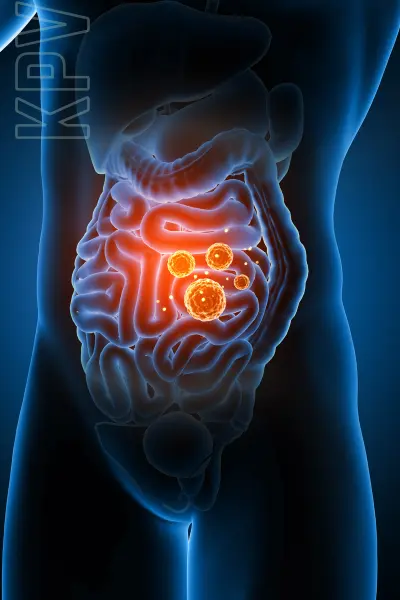
Buy KPV Peptide Nasal Spray from Peptide Works. Supplied in 15ml and 30ml glass spray bottles, this non-invasive option offers an easy and reliable method for consistent application.
KPV peptide offers powerful anti-inflammatory and healing benefits. It helps calm irritation in the gut and skin, supports faster tissue repair, and protects cells from stress. Researchers find it promotes smoother recovery, reduces redness, and strengthens barrier function making it a standout peptide in studies on healing and inflammation control.
Research shows the KPV peptide can support wound healing and tissue repair. It helps reduce swelling, calm inflammation, and protect cells while they rebuild. In studies, it speeds up skin and gut recovery by improving how tissues close and strengthen. KPV helps the body heal faster and stay balanced during the repair process.
KPV peptide is often combined with BPC-157 in research for stronger healing support. Together, they may help reduce inflammation, protect the gut lining, and speed up tissue repair. KPV helps calm immune reactions, while BPC-157 promotes new cell growth, making this stack a popular choice in studies on recovery and inflammation control.
KPV peptide is legal to purchase for research purposes in many regions, including the United States. It is not approved by the U.S. Food and Drug Administration (FDA) for medical use, but researchers and labs can buy it from verified suppliers. Laws and regulations may differ depending on your country or local jurisdiction.

KPV peptide, a small tripeptide derived from alpha-melanocyte-stimulating hormone, shows strong potential for supporting gut health. It helps reduce inflammation by blocking NF-kB activation and lowering cytokine production. At the same time, it strengthens the gut barrier by improving tight junction proteins and reducing zonulin levels. When combined with BPC-157, KPV can speed up gut healing and may offer promise for conditions like leaky gut and inflammatory bowel disease.
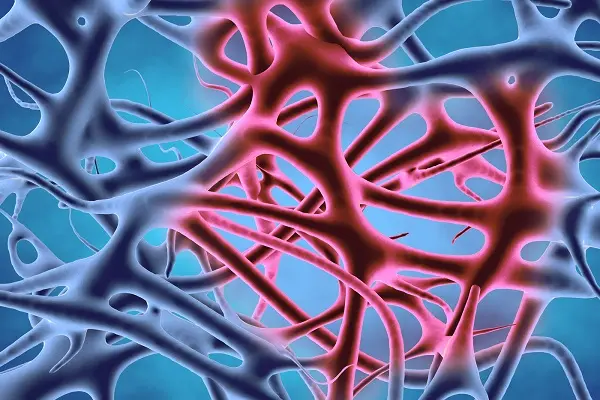
This blog explores the anti-inflammatory properties of peptides such as KPV, BPC-157, and TB-500. It explains how each one works to reduce inflammation, support gut healing, and promote tissue repair. By looking at their combined roles, the article highlights their potential to help with issues like leaky gut, cytokine storms, and tissue recovery through ongoing scientific research.
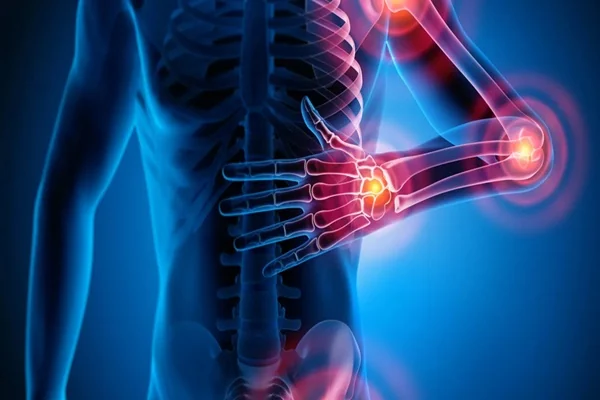
This blog explores LL-37, a groundbreaking peptide that combats bacteria, reduces inflammation and accelerates tissue repair. It highlights LL-37's unique dual-action mechanism, compares it with KPV and TB500, and delves into their roles in biofilm disruption, scar reduction and wound healing. Discover the future of healing peptides in regenerative medicine.
ALL CONTENT AND PRODUCT INFORMATION AVAILABLE ON THIS WEBSITE IS FOR EDUCATIONAL PURPOSES ONLY.
DISCLAIMER: These products are intended solely as a research chemical only. This classification allows for their use only for research development and laboratory studies. The information available on our Peptide Works website: https://peptide-works.com/ is provided for educational purposes only. These products are not for human or animal use or consumption in any manner. Handling of these products should be limited to suitably qualified professionals. They are not to be classified as a drug, food, cosmetic, or medicinal product and must not be mislabelled or used as such.